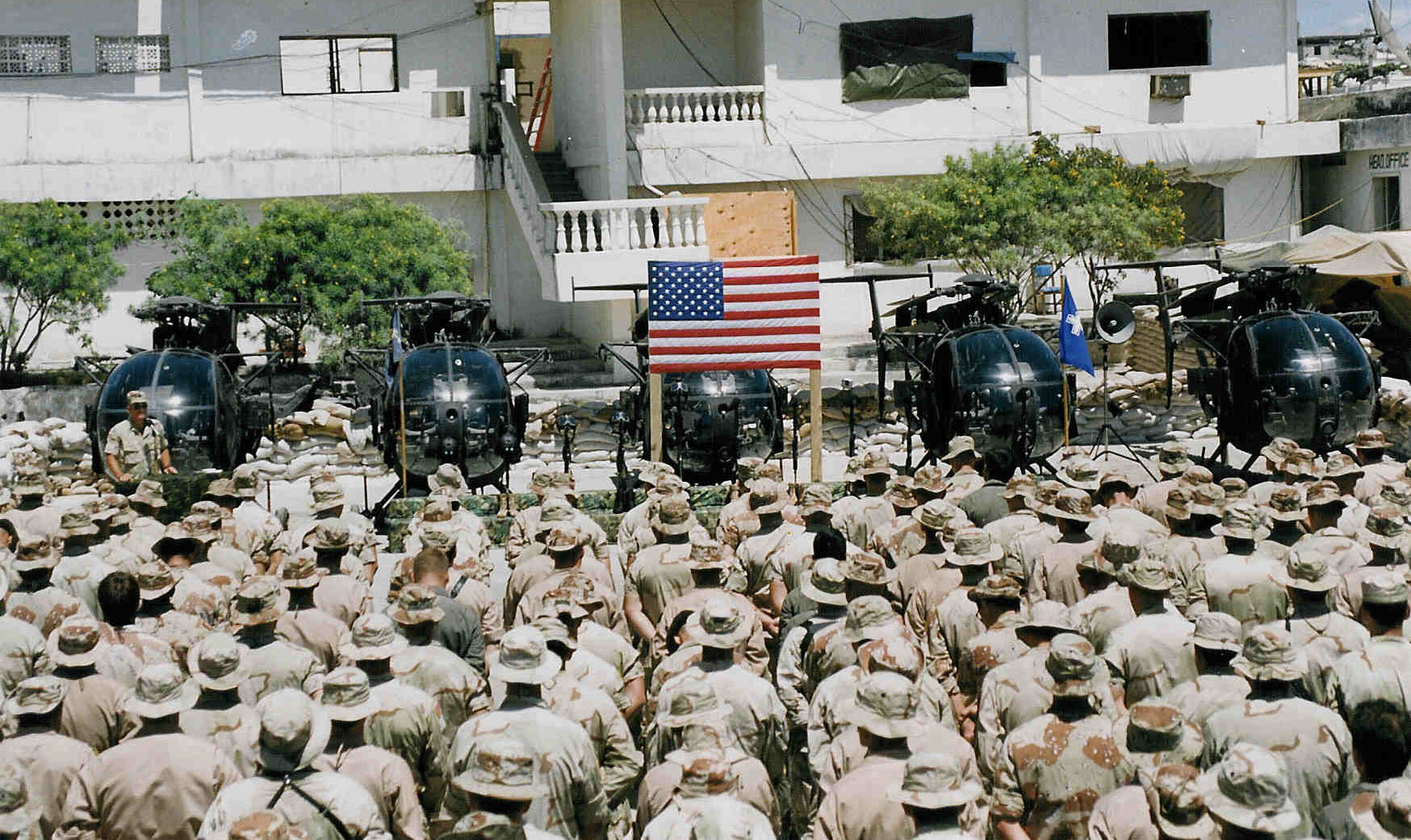The Battle of Mogadishu, which began on October 3, 1993, remains one of the most intense and consequential urban combat operations in modern U.S. military history. It unfolded in the heart of Somalia’s capital during a time of national collapse. Following the ousting of dictator Mohamed Siad Barre in 1991, Somalia descended into civil war, with rival clans and warlords battling for control. Amid the chaos, famine devastated the population, prompting a humanitarian intervention by the United Nations.
In December 1992, the U.S. launched Operation Restore Hope to secure aid distribution routes and stabilize the region. However, the mission evolved from relief to military engagement, particularly targeting the militia of General Mohamed Farrah Aidid, whose forces had killed 24 Pakistani peacekeepers in June 1993.
To dismantle Aidid’s command structure, the U.S. deployed Task Force Ranger, a composite unit of elite forces including Delta Force operators, Army Rangers, Air Force combat controllers, helicopter crews from the 160th Special Operations Aviation Regiment, and a small contingent from DEVGRU. On October 3, intelligence revealed that two of Aidid’s top lieutenants were meeting at the Olympic Hotel. The mission was intended to be a swift raid to capture them.
At 3:42 p.m., helicopters inserted the assault team, and the initial operation succeeded in capturing the targets. However, the extraction quickly deteriorated as Somali militia, and armed civilians flooded the streets, erecting roadblocks and ambushing U.S. convoys.
The situation escalated dramatically when two Black Hawk helicopters—Super Six-One and Super Six-Four—were shot down by rocket-propelled grenades. What was supposed to be a one-hour mission turned into a grueling 17-hour firefight. American forces were pinned down near the crash sites, and efforts to rescue the downed crews became the focus of the battle. Delta Force snipers Master Sgt. Gary Gordon and Sgt. First Class Randy Shughart volunteered to defend the crew of Super Six-Four. They fought with extraordinary bravery until they were killed, and both were posthumously awarded the Medal of Honor. Chief Warrant Officer Michael Durant, the pilot of Super Six-Four, was captured and held for 11 days before being released.
Overnight, a multinational relief convoy composed of Malaysian, Pakistani, and American troops fought through Mogadishu to extract the trapped soldiers. By dawn on October 4, the survivors were evacuated. The human cost was staggering: 18 American soldiers were killed, 73 wounded, one Malaysian soldier died with seven wounded, and two Pakistani soldiers were injured. Somali casualties were estimated between 300 and 1,000, including civilians.
The aftermath of the battle reverberated far beyond Somalia. Graphic images of American soldiers being dragged through the streets shocked the public and led to a reevaluation of U.S. foreign policy. President Bill Clinton ordered a withdrawal from Somalia, and by March 1994, most U.S. forces had left. The United Nations mission ended in 1995.
The battle exposed the risks of military intervention in failed states and sparked debates about mission creep, urban warfare, and the use of elite forces in complex environments. It also prompted reforms in military planning, equipment, and joint operations.
The events were later chronicled in Mark Bowden’s book Black Hawk Down and dramatized in Ridley Scott’s 2001 film adaptation, bringing the story to a global audience. Today, on the anniversary of the battle, we honor the courage and sacrifice of those who fought in Mogadishu. Their legacy endures in military history and serves as a sobering reminder of the human cost of war.
